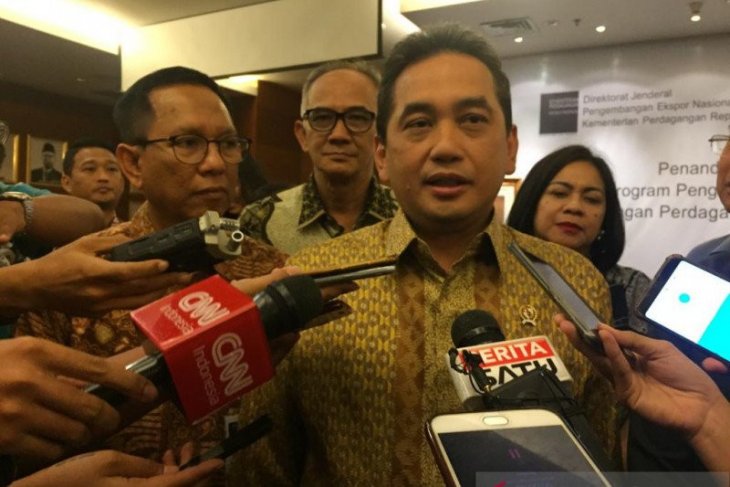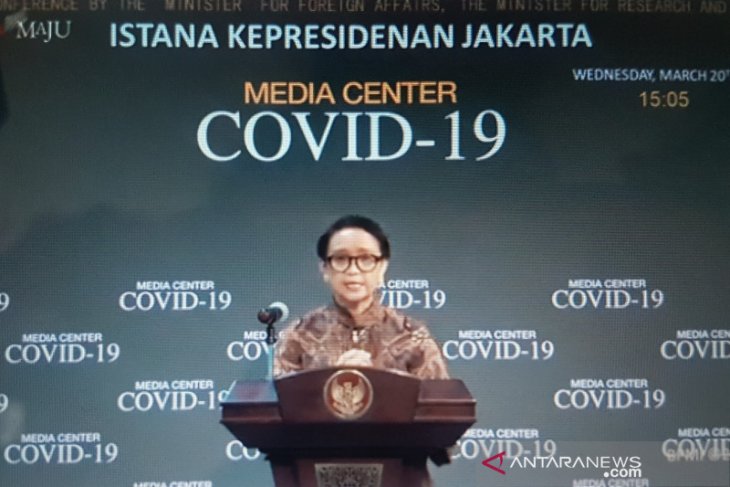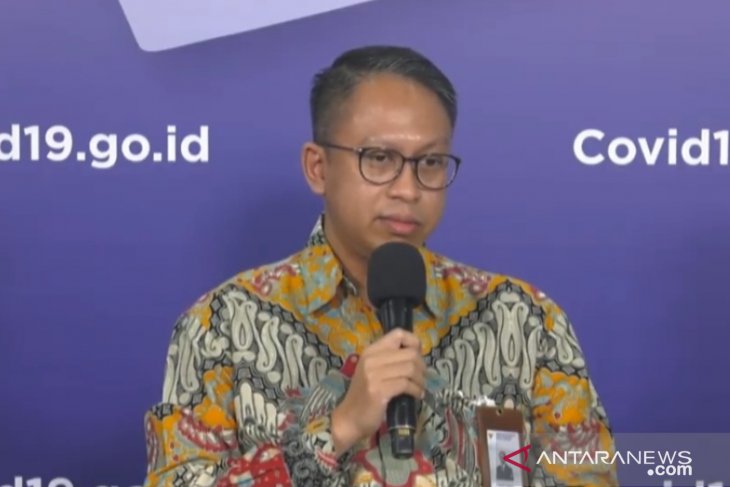Live Streaming
Program Highlight
Company Profile
June
Retail Businesses should Adapt to Digital Ecosystem: Minister
Written by Ani Hasanah
Minister of Trade Agus Suparmanto. ANTARA/Mentari Dwi Gayati.
Indonesian Trade Minister Agus Suparmanto drew the attention of retail businesspersons to adapt to the digital ecosystem in the new normal period.
"What I want to remind everyone is to push the retail business to adapt to a smoother transitioning in future," Suparmanto noted during a virtual discussion in Jakarta, Thursday.
The minister opined that retail businesspersons should not solely concentrate on offline business but also migrate to a digital ecosystem, through a combination of online and offline platforms.
Suparmanto reminded all elements of society, including consumers and sellers, as well as management of retail businesses to persistently apply stringent health protocols.
"I think with the new normal, we need to harbor a new spirit. Hopefully, what we strive to implement would proceed smoothly," he stated.
The Ministry of Trade had earlier confirmed that it will issue a trade ministerial decree to ease electronic business activities.
Minister Suparmanto explained that the soon-to-be-issued decree is derived from Government Regulation No. 80 of 2019 on Trade through Electronic System issued to boost sustainable e-commerce in the country, local-made products, and exports through online means.
The ministry stated that the decree will soon be issued to protect businesspersons and consumers after taking into account dynamic developments in electronic trade. (ANTARA)
June
Foreign Investors Underscore Land, Labor Issues in Indonesia
Written by Ani Hasanah Industry Minister Agus Gumiwang Kartasasmita. ANTARA/HO-Industry Ministry/sh
Industry Minister Agus Gumiwang Kartasasmita. ANTARA/HO-Industry Ministry/sh
Industry Minister Agus Gumiwang Kartasasmita drew attention to the fact that foreign investors had brought up the two issues of land and labor before they invest in Indonesia.
"What I gauged from my visit to some countries to promote investment is that foreign investors have highlighted the two issues," Kartasasmita noted during an online seminar here on Thursday.
The minister pointed out that the two issues were discussed during a deliberation of the draft omnibus bill on job creation.
"Investors have applauded the draft bill on job creation for facilitating a more conducive investment climate," he stated.
Indonesia, with its huge population, has the opportunity to attract investors to relocate their factories from China, the minister noted.
"They surely will be attracted to invest (in Indonesia), as we have a vast population," he pointed out.
To this end, Indonesia will need to create a conducive climate for investment to attract more foreign investors, Kartasasmita stated.
The omnibus bill on job creation was proposed by the Indonesian government, and its final draft was submitted to the Parliament in February this year. The bill will amend 73 prevailing laws on business and investment as well as regulations on manpower, bringing them under a single law.
Supporters claim that the bill aims to boost domestic and foreign investment inflows while creating a more attractive investment climate in the subsequent five years since the president’s re-election last year. (ANTARA)
June
Over 114 thousand Indonesians Return Home during Mar-June 2020
Written by Ani Hasanah Indonesian Foreign Affairs Minister Retno Marsudi. (ANTARA/Yashinta Difa)
Indonesian Foreign Affairs Minister Retno Marsudi. (ANTARA/Yashinta Difa)
A total of 114,587 Indonesian citizens returned back to the country during the course of the last three months amid the COVID-19 pandemic.
"Over a period of nearly three months, from March 18 to June 17, 2020, we have recorded that over 110 thousand, or precisely 114,587 Indonesians returned to the country," Foreign Minister Retno Marsudi noted during a video press briefing in Jakarta on Thursday.
The number of Indonesian citizens returning from overseas rose by 3.7 percent, or 4,130 individuals during the course of a week. The returnees were mostly from Malaysia, crew members, and Indonesian repatriated citizens.
Marsudi pointed out that 83,035 Indonesian citizens had returned from Malaysia, an increase of two percent, from that recorded in the previous week.
In the meantime, 23,297 Indonesian crew members returned from 30 countries to Indonesia through five entry points in Jakarta and Bali.
The number of returning Indonesian crew members rose by 1,564 people, or 7.2 percent, from that of last week.
In the meantime, 8,255 people repatriated from 49 nations, including four from South Korea and two from Peru, arrived in Indonesia on Wednesday (June 17).
The number of repatriated Indonesian citizens returning to the country increased by 956 people, or 13.1 percent.
Furthermore, during the period from March 18 to June 17, 2020, the Indonesian government, through the Indonesian Embassy (Consulate) and consulates in Malaysia, distributed 304,608 packages of daily essentials to its citizens.
The Indonesian Diaspora in Malaysia also sent 109,168 similar packages, thereby bringing the total number of aid packages distributed to Indonesian citizens in Malaysia to 413,776.
Worldwide, a total of 481,940 aid packages were distributed to Indonesians overseas, Marsudi noted. (ANTARA)
June
Economic Recovery to Focus on Public Health Aspect: Ministry
Written by Ani Hasanah
Special Staff for Connectivity, Services Development and Natural Resources from the Coordinating Ministry of Economic Affairs, Raden Edi Prio Pambudi during a press conference of the Task Force for Acceleration of COVID-19 Handling in Jakarta, Thursday (18/6/2020). ANTARA/Katriana/ac.
The Coordinating Ministry for Economic Affairs affirmed that preconditions for recovery in the nine economic sectors will continue to give priority to the aspect of public health to protect the people from COVID-19 transmission.
"When we determine the social-economic sectors, these health requirements are surely prioritized," Special Staff for Connectivity, Services Development, and Natural Resources from the Coordinating Ministry of Economic Affairs, Raden Edi Prio Pambudi, remarked during a press conference of the Task Force for Acceleration of COVID-19 Handling in Jakarta, Thursday.
Pambudi highlighted the need for policies concerning COVID-19 handling and economic recovery to go hand-in-hand and be implemented effectually.
"Quite akin to two sides to a coin. This means they need to go hand-in-hand and effectively, as spread of the virus had halted business activities that surely impacted socio-economic conditions," he stated.
Hence, to ascertain that economic activities can be conducted smoothly, health protocols should continually be implemented and upheld, as the key prerequisite to continue such activities.
"It means that we keep track of the risks in data gathering, and then, we also look at the health and socio-economic aspects," he noted.
The implementation of health protocols does not solely apply in the general context, but a deeper mechanism should also be in place for applying them in each sector owing to diverse characteristics in the economic activities they conduct.
He also stressed that discipline in applying health protocols should take precedence over others.
"Even if (economic sectors) are opened, several requirements should be met. In this case, how to inculcate measures for health maintenance as a day-to-day habit, including wearing masks and other steps. These must be applied," he emphasized.
Furthermore, other aspects that encouraged revival of the nine sectors include the fact that they are projected to not hold the potential risk of transmission. These sectors are also viewed as significantly contributing to the economy and employment.
"Another most important consideration is that these sectors have broad direct links with other sectors. For instance, the transportation of goods. Areas, including agriculture and industry, are also benefited," he pointed out.
Economic sectors to be opened for the recovery of economic activities include mining, oil, industry, construction, plantation, agriculture, animal farming, fisheries, logistics, and transportation of goods.(ANTARA)


